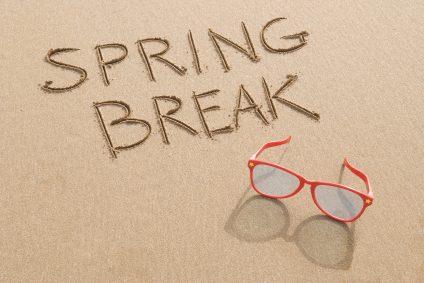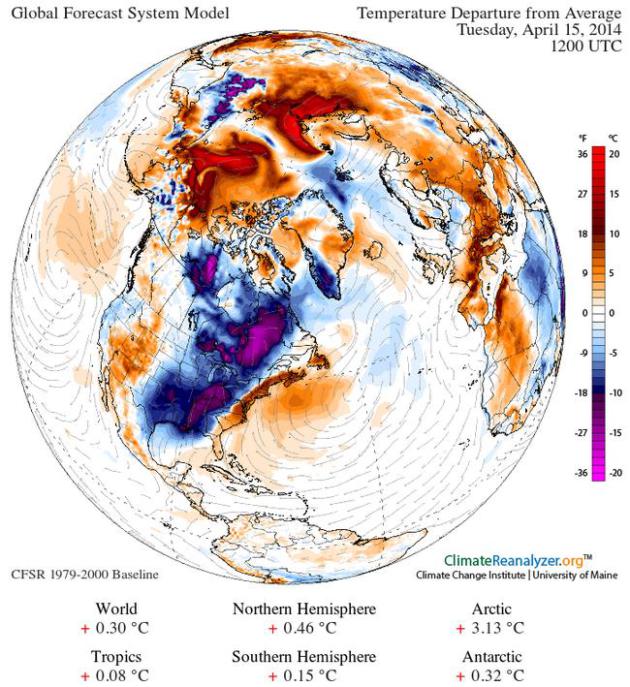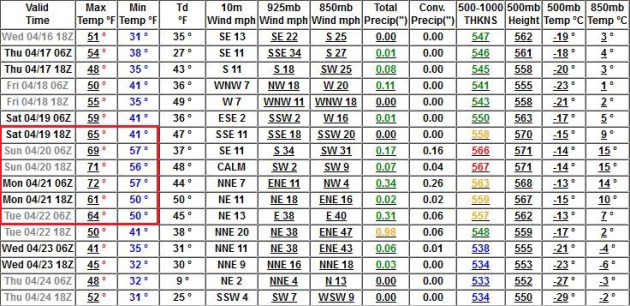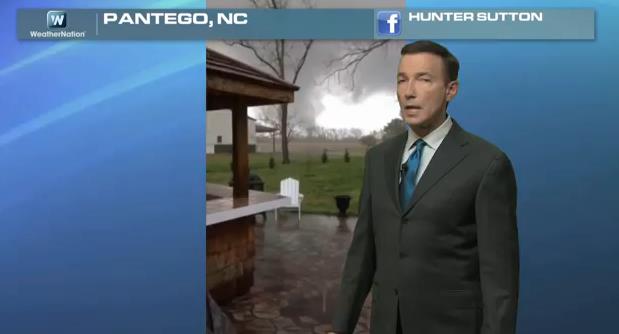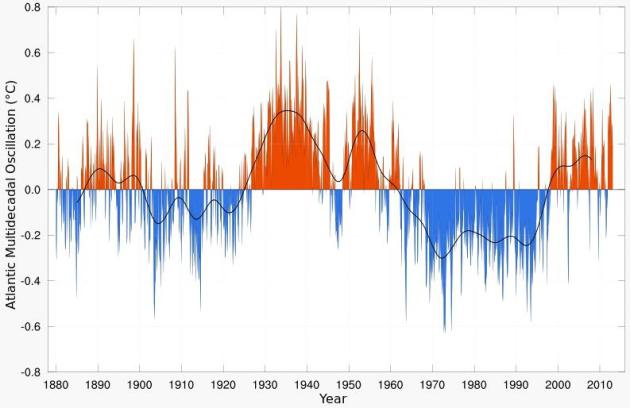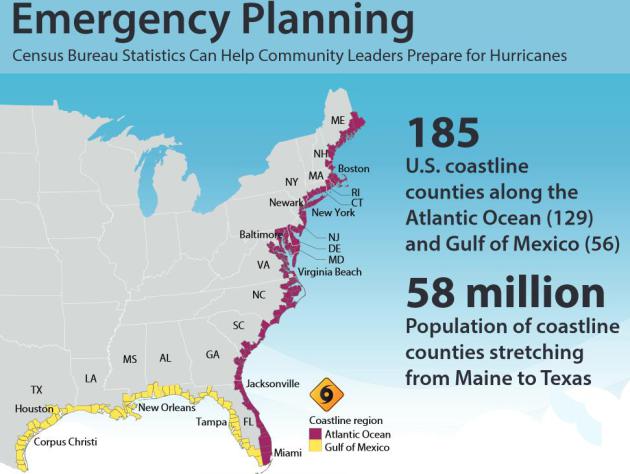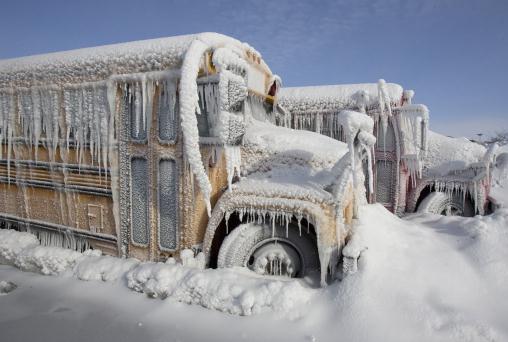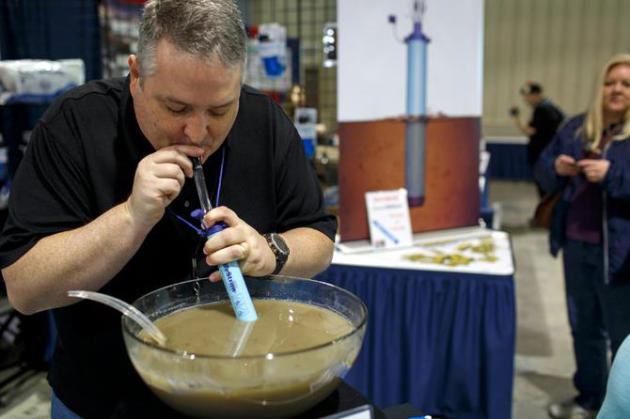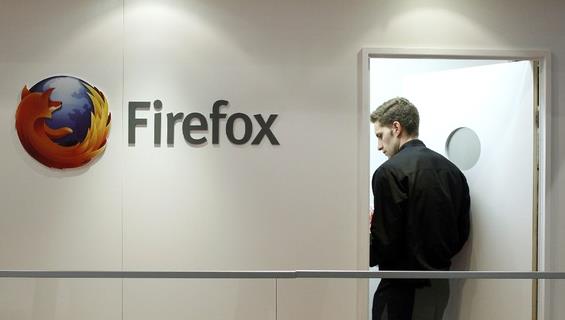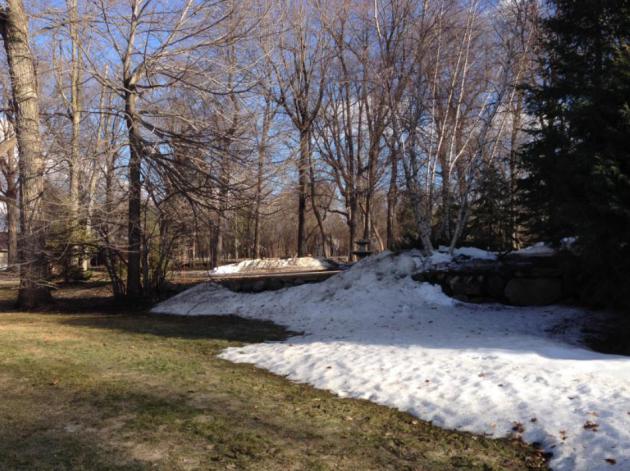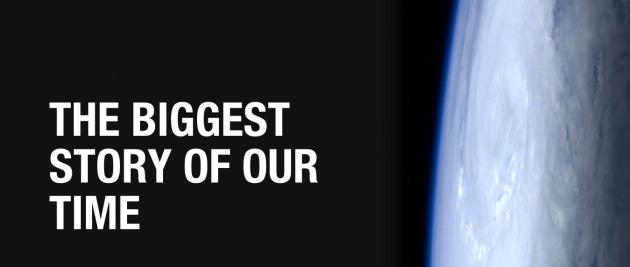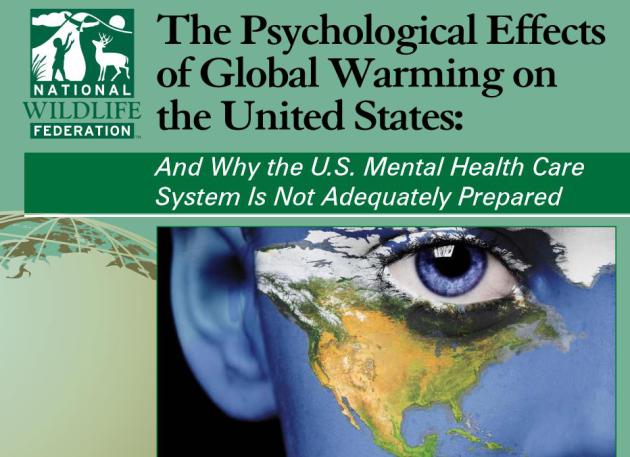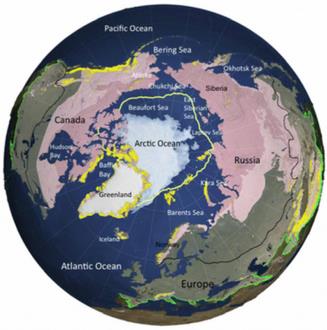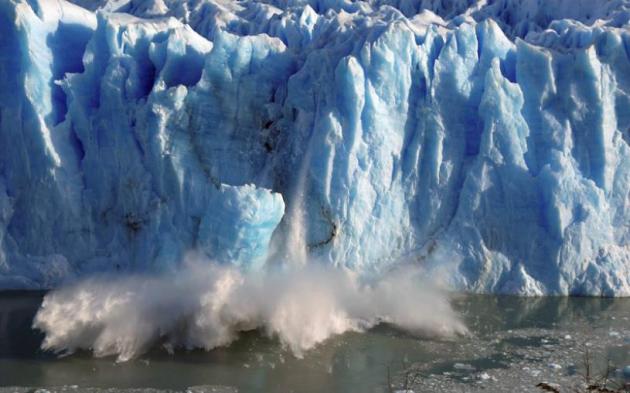Feverish
Here
in The Land of Low Weather Expectations 40F is considered grilling
weather. 70F is an invitation to take off your shirt and bask in the
sun. Today may at least partially restore your faith in a Minnesota
spring; probably the mildest day of the year, to date.
Soak it up.
We cool off a bit Thursday with spotty showers Friday & Saturday.
By early next week a major storm is forecast to spin up near the Quad
Cities of Iowa, pulling colder air into Minnesota. A cold rain Sunday
could, in theory, end as wet snow Sunday night and Monday morning; the
best chance of slushy lawns and robins just south and east of the Twin
Cities.
ECMWF (European) guidance shows highs holding near 40F
Monday, chilly weather much of next week with an atmosphere just cold
enough for a rain/snow mix by the end of the week. Something to look
forward to.
Look at the bright side: no bugs or drippy humidity
levels to accompany today's lukewarm serenade. No wailing tornado sirens
to ruin the fun. Expect a long & luxurious summer; today's a
preview of coming attractions.
And even if it does snow next week
any flakes in your yard will be fleeting. The sun is too high in the sky
for prolonged snow cover.
* last time we hit 70F in the Twin Cities? October 11, 2013, when the high was 75F. We're due.
The Exception To The Rule.
Make the most of today, because I still see a cool bias for much of
April. Whispers of the Polar Vortex. I'm so looking forward to not
talking about the P.V. Enjoy low 70s today, because the first half of
next week will feel like early March. The arrival of colder air may spin
up a cold rain Sunday, possibly mixing with or changing to wet snow
Sunday night and early Monday. Graphic: Weatherspark.
Scratching A Persistent Meteorological Itch.
When in a drought, don't predict rain. When stuck in a cold rut, as
we've been since December, be careful about not predicting an imminent
correction. Whether it's the AMO, jet stream gymnastics orchestrated by
changes in the Arctic, or just natural variability, the pattern
continues to favor frequent intrusions of Canadian air. Temperature
anomalies next Tuesday show readings 10-25F colder than average for
mid-April over much of the eastern USA. Note Arctic temperatures,
running 4 to 4.5F warmer than average, a trend we've seen much of the
winter. Graphic: Climate Reanalyzer.
I Sure Hope The GFS Is Right.
After a "correction" (sounds better than a cold front) next week GFS
guidance shows a warming trend the weekend of April 19-20, possibly 60s
and low 70s. I'm not buying it yet, but I want to believe.
Carolina Tornadoes & Record Rains Swamp The South.
It's a tale of the moisture haves and have-nots. California is
withering through historic drought, while the rains continue to drown
much of Dixie. That, and a series of tornadoes in recent days. Even so,
the national tornado count, to date, is a fraction of average, which may
be at least one pleasant symptom of a lingering cool bias east of the
Rockies. That's the subject of today's
Climate Matters: "
WeatherNationTV
Chief Meteorologist Paul Douglas goes over the flooding rains and
severe weather that moved through the Deep South the past few days. As
devastating as the storms may be, we are still well below average for
tornadoes for this time of year. Are hints of the Polar Vortex to blame?"
Natural Variation In North Atlantic Ocean Caused Extreme Winters In U.S. and Europe.
There's still a fair amount of uncertainty: was it a response to ocean
circulations in the North Atlantic or changes in the jet stream related
to rapid warming in the Arctic? Here's one theory, courtesy of
Science 2.0: "...
The
extreme cold weather observed across Europe and the east coast of the
US in recent winters is due to to natural, long-term variations in sea
surface temperatures, according to a new study published in
Environmental Research Letters. The researchers from University of
California Irvine show that the Atlantic Multidecadal Oscillation (AMO)
phenomenon — a natural pattern of variation in North Atlantic sea
surface temperatures that switches between a positive and negative phase
every 60-70 years — can affect an atmospheric circulation pattern,
known as the North Atlantic Oscillation (NAO), that influences the
temperature and precipitation over the Northern Hemisphere in winter..."
Facts For Features: 2014 Hurricane Season Begins.
Technically hurricane season kicks off on June 1, but hurricanes have
been observed every month of the year; here's an excerpt from an
interesting post from the
U.S. Census Bureau:
8.
The number of years since the U.S. was struck by a major hurricane
(Category 3 or higher). The last one was Hurricane Wilma in October 2005
over Southwest Florida.
<
http://www.nhc.noaa.gov/outreach/history/>
2.
The number of hurricanes during the 2013 Atlantic hurricane season.
Hurricane Humberto and Hurricane Ingrid were both Category 1 hurricanes
but did not reach the United States.
Source: National Hurricane Center
<
http://www.nhc.noaa.gov/2013atlan.shtml>
185.
The number of coastline counties along the Atlantic (129 counties) and
Gulf of Mexico (56 counties) most threatened by Atlantic hurricanes.
<
http://www.census.gov/newsroom/emergencies/additional/additional_information_on_coastal_areas.html>
Study: Birds Have Highly Developed Weather "Radar". Now if I can just interview a few robins I'll be able to figure out the 7-Day. Here's an excerpt of a story at
The Summit County Citizens Voice that caught my eye: "
Some
migrating birds may be able to sense weather patterns on a hemispheric
scale, helping them optimally time their nonstop transoceanic flights.
Bar-tailed godwits, the ultra-marathon champions of migration, breed in
Alaska and spend winters in New Zealand and a recent U.S. Geological
Survey-led study suggests that these birds can sense broad weather
patterns..." (Image: wikimedia.org).
"Don't Come Into Work Today".
Should (all) employers have guidelines for specific weather conditions
that take some of the mystery out of determining when employees should
come to work? Here's a clip from an interesting article at
JDSupra: "...
Employers
may want to put a policy in place to address those occasions when, due
to the weather or other emergency, the workplace must be closed or
particular employees can’t make it to work. In implementing such
policies, you’ll also need to take into account differing legal rules
regarding leave time, and payment to exempt and nonexempt employees
under both the Fair Labor Standards Act (FLSA) and state law. A
Weather/Emergency Closing Policy should address not only winter weather
circumstances but any other weather event or emergency that would force a
workplace closure. Your policy should address possible grounds for
closure, such as snowfall levels, loss of power, hurricanes,
governor-declared shut downs, and so on..." (File photo: AP).
The Capitalism of Catastrophe.
Will civilization as we know it break down at some point in the future?
No idea, but you can bet there's someone ready and willing to make a
buck off low-grade paranoia. Here's a clip from
The New York Times: "...
Ever
since Isaiah, someone somewhere has been talking about the imminent
demise of civilized society. Still, one could argue that today’s
connected world of globalized supply chains and multinational banks is
especially susceptible to a catastrophic failure. This is not the
exclusive opinion of the fringe groups of society: Just last month, a study
financed by NASA found that, because of financial inequality and
environmental problems, the industrial world could suffer “a precipitous
collapse” within decades..."
Photo credit above: "
Brian
Howard of PrepareNow Outfitters drank dirty water with a purification
straw at the National Preppers and Survivalists Expo in Tulsa, Okla."
Credit Steve Hebert for The New York Times.
How To Book Your Next Plane Ticket To Get The Best Deal. Huffington Post has a few good suggestions to increase the odds of truly landing the lowest airfare on your next trip: here's an excerpt: "...
Rick Seaney of FareCompare.com, CheapAir.com and the folks at Hopper.com
all agree: To get the best fares, you should always try to fly on
Tuesdays, Wednesdays and Saturdays. In particular, Hopper suggests that
travelers should return from domestic trips on Tuesdays (to save up to
$50) and from international trips on Wednesdays (to save roughly $60).
The most expensive day to return is Friday. Because countless tour groups head across the pond throughout Europe's high season in the summer, CheapAir.com says, you should always play around with your dates if you're flexible..."
Serious Reading Takes A Hit From Online & Skimming, Researchers Say.
I would read the entire article if I had the time (and wasn't saddled
with an acute case of ADHD). Time to move on to the next shiny object.
Here's a clip from
The Washington Post: "...
I
worry that the superficial way we read during the day is affecting us
when we have to read with more in-depth processing,” said Maryanne Wolf,
a Tufts University cognitive neuroscientist and the author of “Proust
and the Squid: The Story and Science of the Reading Brain.” If the rise
of nonstop cable TV news gave the world a culture of sound bites, the
Internet, Wolf said, is bringing about an eye byte culture..."
Google Glass Lets You "Livestream" Events. This opens up all kinds of possibilities, some better than others. What, exactly, would you stream? Here's a clip from
pcmag.com: "
Friends
missing a concert? Sister can't make it to your baby shower? Just strap
on a pair of Google Glass and livestream the event. Livestream today launched
its first piece of Glass software: Just a tap of the headset and a
simple "OK Glass, Livestream" voice command will put online viewers in
your shoes..."
"Google Glass May Have Saved My Life".
Yes, they look dorky, but a new form of augmented reality is emerging,
one that doctors, police, firefighters and other professionals may be
able to tap to do their jobs more quickly and effectively. Here's a clip
from an eye-opening story at
Re/ code: "...
But
here’s a use that’s hard to argue with: An emergency room doctor at
Beth Israel Deaconess Medical Center, a Harvard teaching hospital in
Boston, Mass., was tending to a patient suffering from massive brain
bleeding. Because the doctor was wearing Google Glass, he was able to
see that the patient had severe allergic reactions to blood pressure
medications. Normally that might have required running to a computer or
grabbing a tablet, accessing the patient records and then scrubbing up
again. “Google Glass enabled me to view this patient’s allergy
information and current medication regimen without having to excuse
myself to log in to a computer, or even lose eye contact,” said Dr.
Steve Horng..."
The Culture Of Shut Up.
Jon Lovett has an interesting story about how social media (new
megaphones) may be having an unintended chilling effect on free speech
in this essay at
The Atlantic; here's a clip: "...
I
don’t want those voices to drown out the diverse and compelling voices
that now have a better chance of making it in front of us than ever
before—even as we still have a ways to go. And what I think we have to
do, then, to protect this new wonderful thing of ‘a good idea can come
from anyone anywhere’—is we need to stop telling each other to shut up.
We need to get comfortable with the reality that no one is going to shut
up. You aren’t going to shut up. I’m not going to shut up. The idiots
aren’t going to shut up. We need to learn to live with the noise and
tolerate the noise even when the noise is stupid, even when the noise is
offensive, even when the noise is at times dangerous..."
Photo credit above: Albert Gea/Reuters.
"NOAH" Showing In England Canceled By Flood. No, you can't make this stuff up. Here's an excerpt from
The PBS NewsHour: "
Moviegoers
who attempted to flood the Vue Cinema in Exeter, England, to watch an
afternoon showing of the movie “Noah” — based on the biblical story of
Noah and the great Ark — got to witness a piece of the movie come to
life. The staff at the Vue found, upon arriving to work Friday morning,
that the theater itself had flooded overnight due to a faulty ice machine. While the flood was not of the biblical scale, the water was enough to cancel the 12:15 local time screening..."
Photo credit above: "
The Vue Cinema in Exeter, England got a taste of the movie “Noah” thanks to a faulty ice machine." Photo by Flickr user AroundExeter.co.uk.
Climate Stories....
Years of Living Dangerously. Showtime
is airing a series about climate change, not the theory, but the
reality - how climate volatility is already showing up around the world.
Episode 1 is now available
online.
The Psychological Effects of Global Warming on the United States. Here's a PDF from the
National Wildlife Federation.
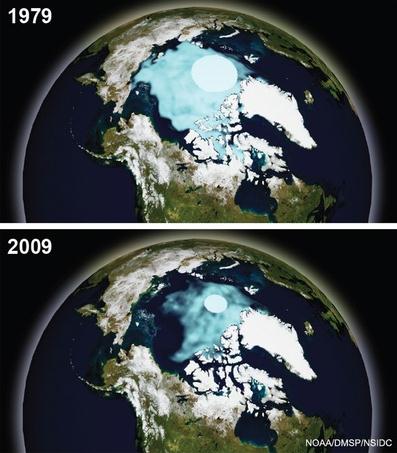 NASA Study Finds Arctic Melt Is Now 15 Days Longer Than 30 Years Ago
NASA Study Finds Arctic Melt Is Now 15 Days Longer Than 30 Years Ago.
Environmental News Network has the update; here's an excerpt: "
The
length of the melt season for Arctic sea ice is growing by several days
each decade, and an earlier start to the melt season is allowing the
Arctic Ocean to absorb enough additional solar radiation in some places
to melt as much as four feet of the Arctic ice cap’s thickness,
according to a new study by National Snow and Ice Data Center (NSIDC)
and NASA researchers. Arctic sea ice has been in sharp decline during
the last four decades. The sea ice cover is shrinking and thinning,
making scientists think an ice-free Arctic Ocean during the summer might
be reached this century. The seven lowest September sea ice extents in
the satellite record have all occurred in the past seven years..."
A Report On Climate Change And Flooding In The Northeastern U.S. Huffington Post
has an overview of new research on extreme rainfall events in New
England; here's an excerpt: "...A combination of natural variability and
climate warming may be affecting both conditions that predispose the
land surface to flooding and flood-producing storm events. "In general,
most of the Northeast except Eastern and Central Maine has been seeing
these upward trends in magnitude and in frequency," Collins said. The
biggest change is the small floods are getting bigger, though they are
still relatively small, and they are getting more frequent. These
smaller floods are important for stream and floodplain processes and
habitat..."
File photo: Associated Press.
Climate Trends In The Arctic As Observed From Space. It's Melting. Fast. Minnesota climate scientist Greg Laden has the story, a recap of new NASA research on the rate of Arctic ice melt at
scienceblogs.com. Here are a few bullet points from the report:
*
Warming in the region has been amplified ... with the rate of warming
observed to be ~0.60±0.07 o C per decade in the Arctic (>64 oN)
compared to ~0.2C per decade globally during the last three decades.
* sea ice extent has been declining at the rate of ~3.8% per decade,
* while the perennial ice (represented by summer ice minimum) is
declining at a much greater rate of ~11.5% per decade.
* Spring snow cover [is] declining by -2.12 % per decade for the period 1967 to 2012.
* The Greenland ice sheet has been losing mass at the rate of ~123 Gt
per year (sea level equivalence of 0.34 mm per year) during the period
from 1993 to 2010
* for the period 2005
to 2010, a higher rate of [Greenland ice sheet] mass loss of ~228 Gt per
year has been observed.
* the average
area of mountain glaciers has declined by as much as 10% per decade
during the period from 1960 to 2000.
*
Increases in permafrost temperature have also been measured in many
parts of the Northern Hemisphere while a thickening of the active layer
that overlies permafrost and a thinning of seasonally-frozen ground has
also been reported...."
Climate Change Needs The Politics Of The Impossible.
Can the current, fractured two-party system work with industry to
devise solutions and technologies to mitigate climate change, or will be
forced to play defense, throwing all our resources at adaptation? Or
will a viable third party arise, with the vision, means and grass root
support necessary to turn words into action? Here's a clip from a story
at
The Daily Beast: "...
So
the age of climate change doesn’t just need climate scientists, or even
technologists, and adaptation engineers. They are essential, but if we
just rely on them, we’re likely to drift further into passivity and
pessimism. We also need, in incremental and experimental ways, to keep
building up a real politics of climate change. That politics will be
both environmentalist and human-oriented, because there’s no separating
the two in the age of climate change. It will have to ask how the
peoples of the world are going to live together and share its benefits
and dangers, and also how we are going to use, preserve, and transform
the world itself. Braiding together human rights and distributive
justice with environmental ethics and the human relation to the natural
world isn’t just a nice-sounding, if daunting idea. It’s quite simply
the only way forward..."
Photo credit above: Andres Forza/Reuters.
